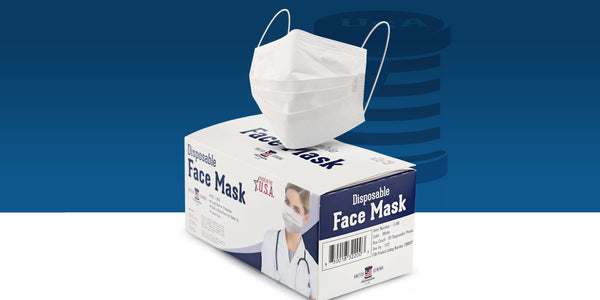Why Face Shields Aren’t as Effective as Face Masks
Since the start, the CDC's stand has been clear: Masks are the best protection against COVID-19. Plastic shields have appeared on the scene as a more comfortable alternative. They don't protect as well on their own in place of masks, though. They're effective only when paired with a mask.
Here's why.
Are shields as effective as masks?
No. Dr. Michael B. Edmond is a clinical professor of infectious diseases at the University of Iowa Carver College of Medicine. In an article on Healthline.com, he says shields can slow the spread, but they still leave wearers vulnerable.
What are face shields made of?
Medical workers often use eye and face shields as protection from hazardous fluids. They're usually made of Polycarbonate and polyester film, both transparent for vision clarity. They're lightweight and easy to create in any shape.
It's not the quality of material that prevents them from being effective on their own. It's the potential for droplets to escape from behind the shield and spread germs and viruses.
WHAT SHIELDS DO WELL
Shields protect against exposure to droplets from the mouth and nose. They cover the eyes, mouth, and nose — all primary entry points for infection. But they have their limitations, too.
WHAT SHIELDS FAIL TO DO
They don’t protect against droplets reaching the face through the sides or bottom of the shield. Shields leave considerable open space through which a wearer can broadcast or inhale droplets. Their best use: In conjunction with a mask, says Dr. Joy Henningsen.
She's a clinical assistant professor at the University of Alabama at Birmingham School of Medicine, also quoted in the Healthline.com piece. “There’s no such thing as too many weapons against the novel coronavirus,” Henningsen said. “The more protection, the better.”
The CDC sites a lack of evidence that shields protect well against coronavirus. Two studies illustrated their deficiencies.
One, from Florida Atlantic University’s College of Engineering and Computer Science, recorded by video the transmission a simulation of droplet movement after a cough or sneeze. A shield blocked the initial path, but particles escaped through open spaces on the shield.
Another study in Switzerland tested people during a local outbreak. The results: None of those who wore masks got sick, but most who relied on a shield only did. The study says shields can give wearers a "false sense of security," according to a Reuters report.
What should I wear to protect against coronavirus?
The Florida Atlantic study recommends a well-constructed, high-quality cloth or paper mask. Simple design, rather than models with exhale valves, is most effective. Alternatives to masks threaten to hinder efforts to curb the spread of COVID-19.
"This latest research provides important evidence to further support CDC guidelines," said Stella Batalama, Ph.D. She's dean of Florida Atlantic's College of Engineering and Science, in a story on ScienceDaiy.com. (We need to) "inform the public to make better selections for face coverings for their benefit and for public safety."
Sources:

